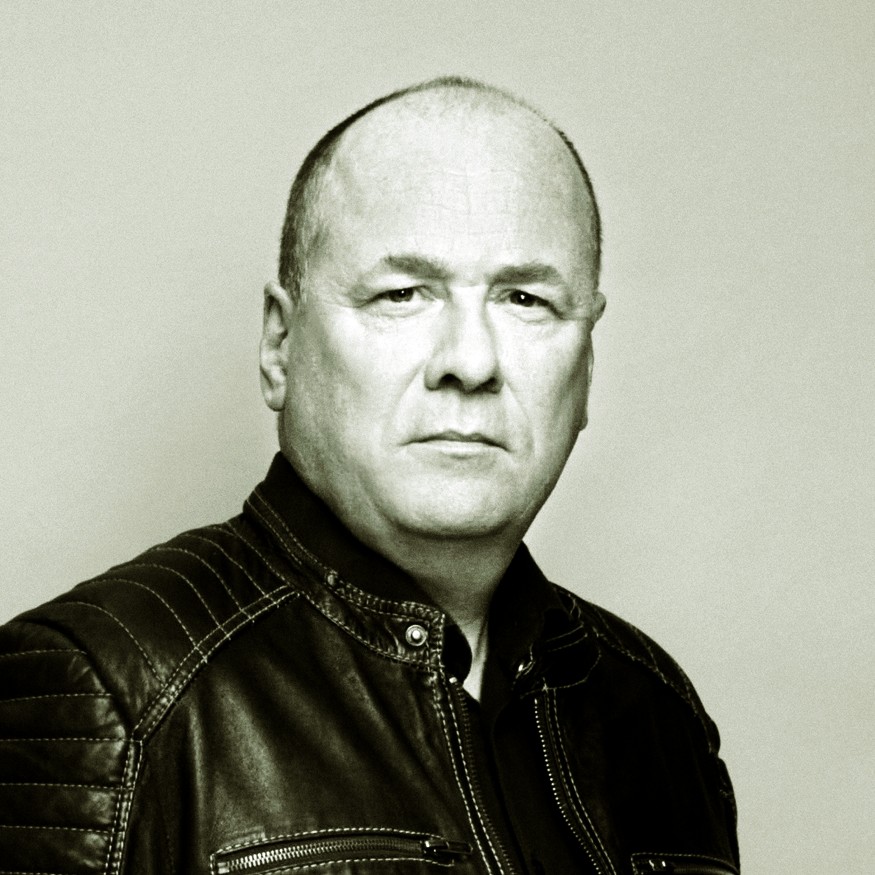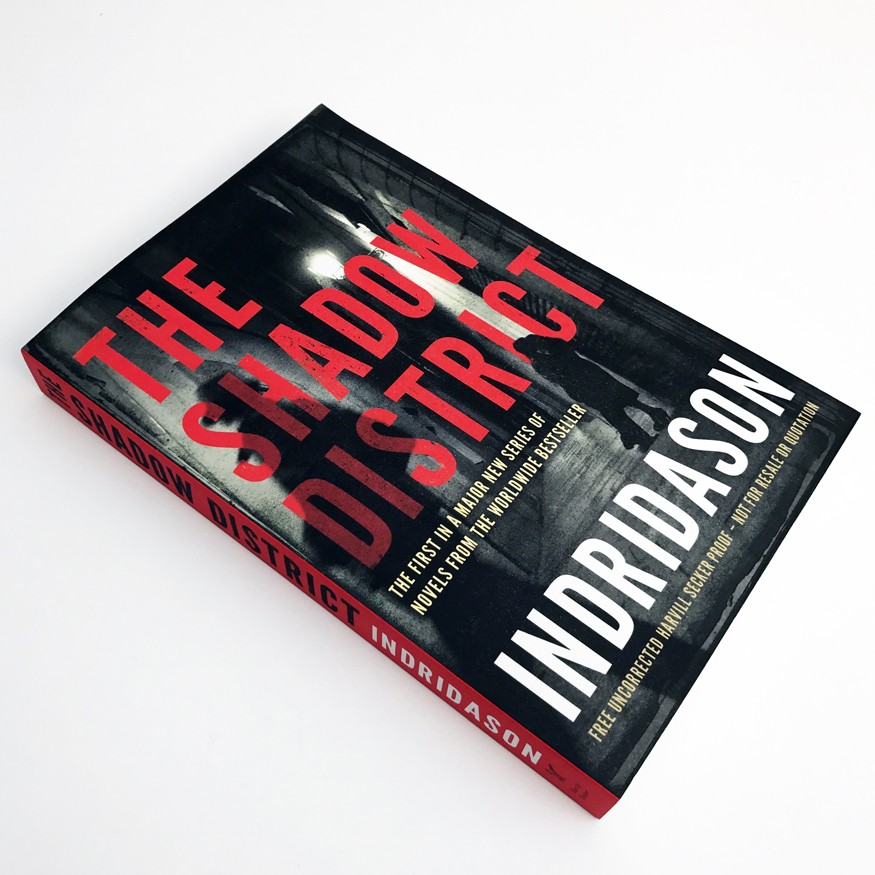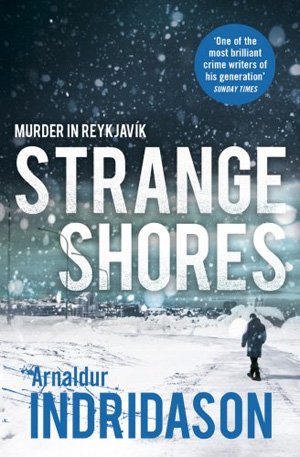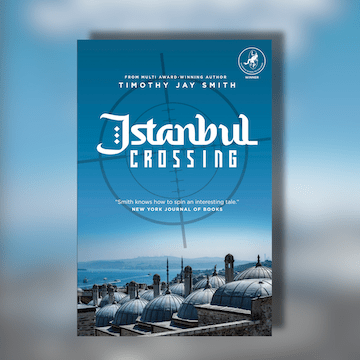 The Icelandic writer Arnaldur Indridason is a quiet and thoughtful man, who has studied his own country, its history and its literature, in great detail. These are qualities that shine through in the novels he wrote about Detective Erlendur, which began with Sons of Dust in 1997 and concluded with Strange Shores in 2010 (translated in 2014). Whether Erlendur returns or not, the writer hasn’t decided, but he has begun a new series. Beginning with The Shadow District, which arrives in May, Arnaldur will look at life in Iceland during World War II, through the medium of a crime story. It’s not often journalists get the chance to speak to him, but we managed to ask Arnaldur a few questions about his new books…
The Icelandic writer Arnaldur Indridason is a quiet and thoughtful man, who has studied his own country, its history and its literature, in great detail. These are qualities that shine through in the novels he wrote about Detective Erlendur, which began with Sons of Dust in 1997 and concluded with Strange Shores in 2010 (translated in 2014). Whether Erlendur returns or not, the writer hasn’t decided, but he has begun a new series. Beginning with The Shadow District, which arrives in May, Arnaldur will look at life in Iceland during World War II, through the medium of a crime story. It’s not often journalists get the chance to speak to him, but we managed to ask Arnaldur a few questions about his new books…
Your next book translated into English will be The Shadow District, the start of a new series. What’s this one about and what was the inspiration behind it, or where did the idea for it come from?
It is about a young girl found murdered behind the National Theatre in Reykjavík in 1944, during the Second World War in Iceland when we were occpied by the British and American forces. The idea was to write about the war years in Iceland from the point of view of the crime novel because first of all it had never been done before and secondly because very little has been written about the period in fiction generally. Historians have done it somewhat, but not fiction writers and it was about time. The period is of course fasinating for a writer because so many social changes followed the occupation. I have two policemen in the trilogy of books, one is Icelandic working in Reykjavík and the other is Canadian and a member of the armed forces – he is of Icelandic heritage and speaks Icelandic. They work together on the crimes as well issues that occur between the troops and the Icelandic citizens, especially between the Icelandic women and the soldiers.
 The story is split between the present and WWII era Reykjavik. What is it about that era that catches your imagination, why this period in Icelandic history?
The story is split between the present and WWII era Reykjavik. What is it about that era that catches your imagination, why this period in Icelandic history?
It was at that time that Iceland became part of world politics and the isolation of the island was broken for good. It marks the beginning of the huge changes that took place in Iceland when the county stopped being a very, very poor peasant society of farmers and farming with growing fisheries and became this rich, modern society that ended with the economic crash a few decades later. People moved to the city and to the villages, women felt freer and suddenly there were more opportunities. People became rich and as a result of the war we had an American army base in Iceland for half a century. The Second Word War was very important in Iceland, as of course it was for the world.
We are so used to Erlendur, but in The Shadow District we meet Konrad and Stephan. What are they like and how did you develop them?
There are actually three policemen in this first book, two from the wartime era and one in the present day looking back to the work of the other two. The story moves back and forth in time as I have done before in some of my previous books. Konrad is the character working in our time, a retired policeman who becomes interested in the case of the murdered girl from the war years. The other officers, Stephan (or Thorson) and Flovent are the WWII policemen on the case. Flovent and Thorson will also be the main characters in the next two books; a Canadian-born Icelander and a liaison officer between the army police and the Icelandic police. Thorson is gay, though not publically, and Flovent is haunted by memories of the Spanish Flu in 1918, to which he lost his mother and sister.
What did you find most challenging starting new series?
In this case it was going back to the war years. You need to do a lot of research and then try in your own way to find the right atmosphere for the times, and the storytelling itself is difficult. But it was great fun as I have a background in history. Writing about the issues of the war years in Iceland was also enlightning, especially the aspects surrounding the relationship between the Icelandic women and the troops. It was considered a very serious problem and they had even a word for it – ‘The Situation’.
You are tracking back into the past, as do several of the Erlendur books. What is it that you like about mysteries that span the decades? Is it nostalgia, or something more for you?
It has something to do with the element of time itself, I think. I am very much interested in the concept of time in our lives and in literature – especially the interaction between time passing in a story and the narration. How do they work together? How can time affect the narration in the same way it affects our lives? Who were we in the past? Who are we now? What has changed if anyting? These are the questions I like to ask in connection with the storytelling itself. So, it is all about time and how it affects our lives and the many elements of narration in fiction.
Can you give us any little tasters of what we can expect in future books in the series – just a rough idea of the types of crimes and circumstances?
Well, the next one out in England is about a travelling salesman who is shot in the head with an army gun and Flovent and Thorson get on the case. The one after that is about a woman who needs to pretend she still loves an old flame in order to get information from him and very possibly to kill him… This is a tough one for Flovent and Thorson.
 Do you think Erlendur has been laid to rest or are there more stories for him to come?
Do you think Erlendur has been laid to rest or are there more stories for him to come?
I don‘t know about Erlendur except that he is very cold right now and that nobody knows where he is. I also know that it can take a very long time to die from hypothermia. So Erlendur has become his own missing person case and I have no idea if he will ever by found.
Readers in Western Europe and North America are in love with Iceland at the moment, though we probably have a fairly idealistic view of the country. What’s your perspective on that? Knowing that you have a bigger audience in the English speaking world than in Iceland, what is it that you communicate about your country?
I am not at all concious about what it is that I communicate about my country through my books. I just write them the way I see things. I am not a very good at analysing my own work, actually. What I have found out through the years is that foreign readers tend to have, as you say, an idealistic or naive view of the country. We do have all kinds of crime here involving drugs, rape and human trafficking, and very sadly a murder every now and then – every one of these crimes is very painful in such a small community. I have often said that I don‘t write for the travel agencies, I don‘t try to colour Iceland and Reykjavík in bright colours. I write what I see and hear and feel, and first and foremost I write only for my Icelandic readership, the Icelandic reader. This has always been the case. I have no idea of how to write for the English speaking world. I imagine there would be a horrible outcome.
The country is changing too. It’s much more open to tourists, the puffin has become a national symbol, and so on. I met an artist called Thrandur Thorarinson whose work questions certain aspects of modern Iceland and paints how Reykjavik could be, replacing the city hall with a mosque, for instance. What is your sense of the changes going on?
The great change now is all the tourism, Iceland is very popular around the world as a place to visit and experience. The economy is booming because of this and everything seems honky dory. I am sure we crime writers can find something wrong with that whole bloody mess.
The Shadow District by Arnaldur Indridason will be released on 18 May at £12.99. Pre-order your copy below. He will also be speaking in Corbridge, Manchester and Cambridge between 17 and 18 May 2017. Tickets can be booked here.











I thought I had read every single Erlender book. Did SUNS OF DUST have a different title in the US or did it not get published here?
Good point. Sons of Dust hasn’t been translated as yet.
In the Shadow Killer Thomson and Flovent didn’t know each other. How is that possible when they worked together in the Shadow District?
Exactly what I am thinking as I start to read Shadow Killer!